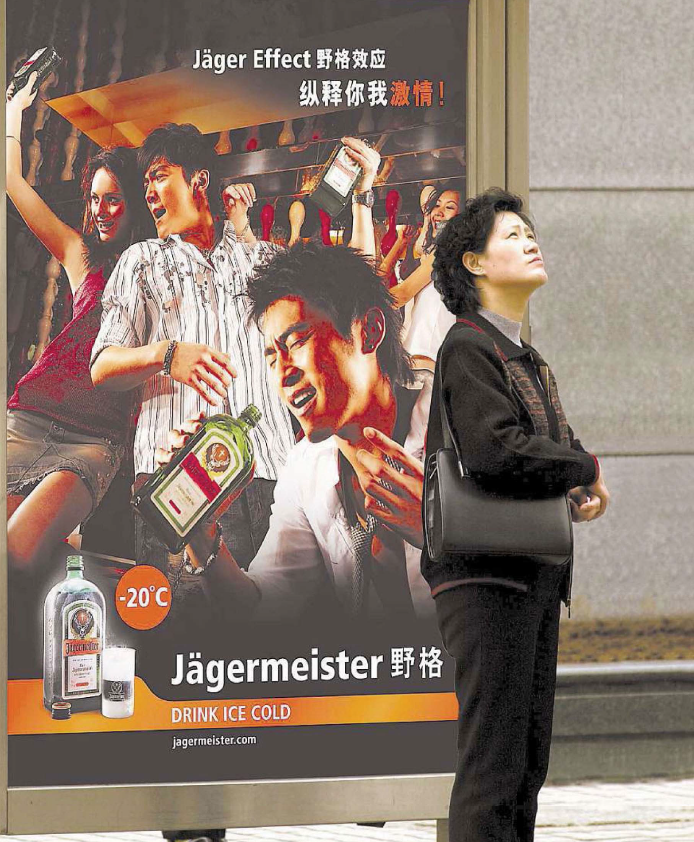
The long road towards a new Chinese brand name for Jägermeister.
Media: Handelsblatt
Summary Translation
When Beijing’s revelers hit the bar areas on the weekends, chances are that they will eventually bump into a stag with an entourage of four girls wearing orange, handingout test-tubes of German herbal liquor. Tonight they are at Sanlitun’s “Brown’s” bar. 34 year old Tanya Yang pulls a face: “The drink’s not bad, but the name?” The characters for “Sheng” and “Lu” are written on the flyer, meaning “holy stag”. It’s an old flyer, as Jägermeister has made a new name for itself in China: Yě Gé (野格). The old name gave an impression of old people and medicine, even of a potency aid. According to Jack Blecker, Member of the Board at Jägermeister in charge of overseas business, Jägermeister underestimated the naming issue for the Chinese market. The old flyers still circulated by his marketing team make him angry and he insists that he will personally make sure that all old marketing material is destroyed. After all, good money was spent on a new name.
In China, a name can be more important than anywhere else in the world. According to Marianne Friese, a Beijing consultant who gave Jägermeister it’s new Chinese identity, “a badly chosen name can negatively influence a brand’s market success”. The CEO of a naming agency confirms the fact that Western companies often underestimate the issue: “Often, companies will try by themselves first, sometimes with the help of a Chinese colleague. Then they come to us for professional assistance”.
Translations are made difficult by linguistic peculiarities – a name that sounds promising in the standard Mandarin dialect could sound completely different in one of China’s many regional dialects. In addition, family names or made-up names like Grundig or Maggi are also difficult and clients need to think about what meaning or values the names should represent.
According to Marianne Friese, a direct translation is not always the best solution, and in Jägermeister’s case a direct translation of “Jäger” (hunter) could be seen as too “violent” for a drink associated with fun and lifestyle. However, the old name, conceived by a group of Chinese students in Germany, was also unsuitable. As “Holy Stag”, the company was not cool or trendy, both important attributes required to reach the target market of young people who like to party.
A long name search finally resulted in “Yě Gé” (野格), meaning “Wild Type”. Jägermeister’s consultant Marianne Friese explains that the name not only sounds similar to the original, but that it also supports the wild, partying image of the brand. Member of the Board Blecker now believes that the Jägermeister brand is on the right track: “We have big expectations of the China market. Our benchmark is Chivas who are already very successful there”. Now, the marketing for the “Wild Type” can really get started.
Affiliated with Dow Jones & Company, Handelsblatt is the largest German-language economics and finance newspaper. With more than 200 editors and correspondents around the world, local and international reports are researched and analysed quickly and exclusively. 289,000 decision-makers regularly read Handelsblatt and with an average circulation of 142,235, daily readership is around 500,000. Handelsblatt is the most frequently-quoted economic medium in Germany due to its up-to-date and high-quality reporting style.
Handelsblatt article from 31.05.2007 (German)
www.handelsblatt.com
